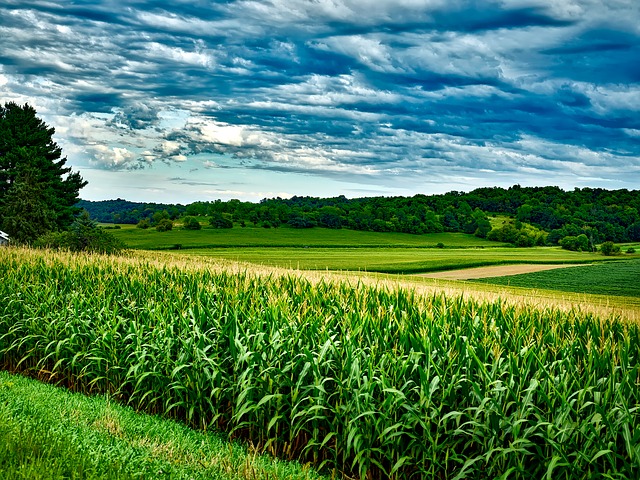July 29, 2019
By Tom Avinelis, Founder and Managing Partner, Agriculture Capital
America’s rich, fertile lands produce crops that feed the world, but increased environmental pressures and production costs coupled with low commodity prices are threatening the future of the traditional farmer. I’ve had the distinct pleasure of stewarding land and cultivating crops for my entire career, nearly four decades, and one thing is for certain: the agriculture industry is perpetually in a cycle of change. With demand and supply ever-changing, I’ve found three traits key to being an adaptive and successful farmer: openness to new innovations, investments in data and technology, and a deep commitment to community. And, having experienced several industry-wide course-corrections over my career, I believe that this evolution is critical to longevity as a farmer.
Innovation
Today, there is a wide new frontier for science and innovation in agriculture, and many new ways to partner across farming, biology, and technology to produce quality food on a scale that reaches more people. My dad turns 84 this year, and over his career as a navy pilot, commercial airline pilot and 70+ year farmer, the changes he has seen in hands-on agriculture and aviation is overwhelming. Surprisingly, aviation and agriculture are two industries with a lot in common: production has skyrocketed, and technology has aided greater precision and automation so much so that you can flip a switch and the plane or tractor can guide itself. Automation and self-driving capabilities, once the technologies of the “future,” are here now and are transforming how we can produce food at scale.
Successful innovation starts with a mindset and attitude of continuous improvement built into your core values as an operator. Innovation can be as simple as creating yellow sticky tape to wrap young trees for protection from earwigs instead of a pesticide, or as complex as a soil monitoring system that automates irrigation and nutrient applications. In order to be successful as a grower, we need to embrace and evangelize the innovations that allow us to farm more efficiently and steward our land and water resources responsibly.
Investing in Data and Technology
We’re in an age where some believe robot farmers exist, but a farmer is a human that has devoted their life to the stewardship of land and regenerative farming systems. All along the agricultural supply chain, data and technologies have equipped farmers with tools to excel in an increasingly competitive and regulated industry. We see this dramatically on my farms in the use of mechanical blueberry harvesters that help us to produce quality blueberries with minimal manual labor. This is made possible through packing technology that inspects each individual berry to guarantee that the box of fruit a consumer picks up in the store delights them with fresh, delicious berries every time.
Additionally, we have implemented electrostatic spray technology that allows the reduction of crop protectants and improves pest and disease control on my farms. The cost of these sprayers is well worth it when you consider the environmental, safety, and financial benefits that come from a decreased use of pesticides. Technological advancements require significant investment but have proven to make agriculture more environmentally sustainable, efficient, and productive practice, which long-term returns value back to the grower in spades.
Community Stewardship
The number of field and crop laborers available to farms has been rapidly declining, presenting a challenge to the industry that requires a change to how growers operate. Farming is a labor-intensive endeavor, and in order to be a low-cost producer, it’s critical to have experienced staff working with you to produce the best produce efficiently. In the face of this challenge, investing in our local communities is so important. Our investment in our team and their families through scholarship programs, appreciation lunches, birthday celebrations, and local community service programs builds an attitude of loyalty, pride, and devotion. I’ve found that in the face of less available labor, the way we care for our team members is the most impactful way to build a positive work environment that employees want to be a part of.
Thinking back on my career as a farmer and ahead at the possibilities that technology and data bring the agriculture industry, I feel optimistic and excited about the future. We’re able to operate farms and food distribution in a more responsible way thanks to new innovations, and efficiently produce more food to feed our communities.
Today I have the good fortune to be involved across the industry in operating my own farms, serving on boards of industry associations, and investing in the future of scaled, regenerative agriculture at Agriculture Capital, but, still, nothing excites me more than getting out into the field with an open mind for new ideas to blossom and develop. I am energized by the possibilities yet to be discovered that will continue to make farming a sustainable and fruitful endeavor.
About the Author
 Tom Avinelis is a Founder and Managing Partner at Agriculture Capital, an investment fund that invests in permanent cropland and midstream assets to create customer-driven, appropriately scaled, vertically integrated, regenerative farming enterprises to grow, pack and market high-value produce. He plays a critical role in the sourcing, analysis, transaction execution and post-investment management for Agriculture Capital’s permanent cropland funds totaling approximately US$ 800 million in assets under management. Prior to Agriculture Capital, Tom harnessed his expertise in table grapes, blueberries and citrus to grow a world-class marketing enterprise, HomeGrown Farms, into one of the largest organic produce marketing firms in California. With nearly forty years of experience in agriculture, Tom is one of the foremost experts on sustainable and organic agriculture at scale in the United States. Over his career, Tom has personally managed over 20,000 acres of sustainable and organic farmland as an owner, investor, and operator.
Tom Avinelis is a Founder and Managing Partner at Agriculture Capital, an investment fund that invests in permanent cropland and midstream assets to create customer-driven, appropriately scaled, vertically integrated, regenerative farming enterprises to grow, pack and market high-value produce. He plays a critical role in the sourcing, analysis, transaction execution and post-investment management for Agriculture Capital’s permanent cropland funds totaling approximately US$ 800 million in assets under management. Prior to Agriculture Capital, Tom harnessed his expertise in table grapes, blueberries and citrus to grow a world-class marketing enterprise, HomeGrown Farms, into one of the largest organic produce marketing firms in California. With nearly forty years of experience in agriculture, Tom is one of the foremost experts on sustainable and organic agriculture at scale in the United States. Over his career, Tom has personally managed over 20,000 acres of sustainable and organic farmland as an owner, investor, and operator.

Let GAI News inform your engagement in the agriculture sector.
GAI News provides crucial and timely news and insight to help you stay ahead of critical agricultural trends through free delivery of two weekly newsletters, Ag Investing Weekly and AgTech Intel.




